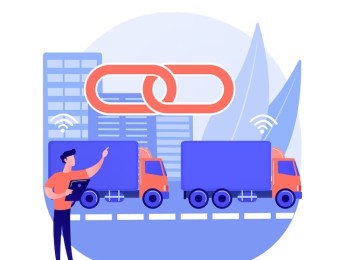Innovation is crucial for the success of any organisation. If an organisation falls behind in the market due to a lack of innovation, it may be extremely difficult to recover from.
Maintaining quality for services or products is a key factor for success. Quality is often lacking when productivity is compromised, or the methods for it are outdated. Innovation is essential in preventing this; frequently revisiting the production process and using innovation to identify improvement methods can ensure there is no room for any mistakes and can provide great mitigation and contingency procedures should the worst happen.
Budgeting is closely related to quality. Budgets are often enlarged or spread thin to compensate for waste that occurs during production. Innovation is an important factor in reducing waste and, therefore, improving the budget. Innovation is strongly focused on productivity, so an organisation should find opportunities to change certain factors that would reduce waste. Reducing waste will prevent the budget from being spent on unusable products.
It is important to develop the necessary skillset to be proficient at innovation: analysing data, using tools and techniques for innovation, and efficient problem-solving.
Upon completing the course, participants will be able to:
- Understand the importance of innovation in relation to quality and budgeting.
- Utilise innovation techniques to create processes for quality and cost reduction.
- Define productivity and various types of organisational waste.
- Identify areas of poor productivity due to poor quality.
- Apply quality improvement tools and techniques to improve productivity.
- Implement cost reduction strategies to meet market standards.
- Develop measuring initiatives and set targets to improve efficiency.
- Understand how quality and productivity increase value for key shareholders.
This course is designed for anyone who is responsible for innovation within an organisation, or those in charge of quality and budget. It would be most beneficial for:
- Regional Managers
- Operations Managers
- Business Owners
- Team Leaders
- Senior Executives
- Innovation Managers
- Financial Advisors
- Business Analysts
- Account Managers
- Planning Managers
This course uses a variety of adult learning styles to aid full understanding and comprehension. Participants will review real-world case studies of businesses that have used certain innovation processes to improve quality and reduce costs.
They will be provided with the necessary tools to review and assess the information provided correctly. Participants will be able to analyse these examples and understand what methods are effective for certain types of businesses. They will later have the opportunity to demonstrate the learned knowledge and create their own innovative processes that focus on quality and budget improvements within their respective roles. These activities will allow the participants to gain a fully comprehensive understanding of the taught content.
Day 5 of each course is reserved for a Q&A session, which may occur off-site. For 10-day courses, this also applies to day 10
Section 1: Value Creation Process
- Defining organisational vision and purpose.
- Creating and measuring value for shareholders.
- A focus on value creation and waste reduction for business improvement.
- The key factors of a winning business model.
- Choosing the ideal tools to manage performance.
- Using innovation to improve quality and reduce waste.
Section 2: Effective Cost Management
- Classifying business expenditure.
- Understanding business cost behaviour.
- Using cost-volume-profit analysis models.
- Evaluating gross margin and break-even.
- Process innovation for product improvement tactics.
- How poor productivity impacts product quality.
Section 3: A Quality Approach to Budgeting
- Analysing waste using value stream maps.
- Reviewing the eight types of waste.
- Lean – a focus on customer value and waste reduction.
- Understand the Six Sigma method and how it eliminates quality variation.
- Principles of Business Process Reengineering (BPR) and Total Quality Management (TQM).
Section 4: Business Improvement Methods
- Identifying the key focus areas.
- Kaizen – a theory of continuous improvement and problem-solving.
- Choosing the ideal key performance measures (KPMs).
- Methods of process mapping – turtle diagram.
- Methods of problem-solving – Pareto analysis, fishbone diagrams.
Section 5: Implementing Innovation Initiatives
- Implementing innovative processes for cost reduction
- Establishing goals and targets for productivity.
- How to overcome human resistance.
- Tackling errors as they occur before impacting productivity.
Upon successful completion of this training course, delegates will be awarded a Holistique Training Certificate of Completion. For those who attend and complete the online training course, a Holistique Training e-Certificate will be provided.
Holistique Training Certificates are accredited by the British Assessment Council (BAC) and The CPD Certification Service (CPD), and are certified under ISO 9001, ISO 21001, and ISO 29993 standards.
CPD credits for this course are granted by our Certificates and will be reflected on the Holistique Training Certificate of Completion. In accordance with the standards of The CPD Certification Service, one CPD credit is awarded per hour of course attendance. A maximum of 50 CPD credits can be claimed for any single course we currently offer.
- Course Code PO3-108
- Course Format Classroom, Online,
- Duration 5 days














